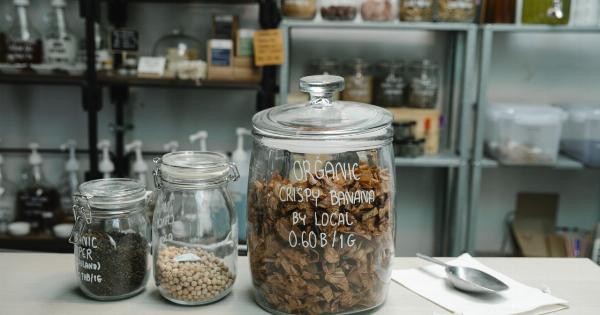Having a healthy respiratory system is crucial for overall well-being. Breathing is an essential bodily function, and any issues with it can significantly impact our daily lives.
One way to support respiratory health naturally is by incorporating herbal teas into our routine. These teas can provide a range of benefits, from soothing irritated airways to relieving congestion. In this article, we will explore seven herbal teas that are known for their positive effects on respiratory health.
1. Peppermint Tea
Peppermint tea is known for its refreshing minty flavor, but it also offers numerous benefits for respiratory health. Menthol, a compound found in peppermint, acts as a natural decongestant and helps clear nasal passages.
It can provide relief from respiratory issues, including sinusitis, allergies, and the common cold. Additionally, peppermint tea has antioxidant and anti-inflammatory properties that support a healthy respiratory system.
2. Eucalyptus Tea
Eucalyptus is commonly used in over-the-counter cold remedies, and for good reason. The leaves of the eucalyptus tree contain a compound called eucalyptol, which has expectorant and antimicrobial properties.
When brewed into tea, eucalyptus can help soothe a sore throat, reduce coughing, and alleviate respiratory congestion. The steam produced while drinking eucalyptus tea can also help clear the airways, making it an excellent choice for respiratory health.
3. Ginger Tea
Ginger is a versatile herb known for its medicinal properties. When it comes to respiratory health, ginger’s anti-inflammatory and antioxidant properties are particularly beneficial.
By reducing inflammation in the airways, ginger tea can help alleviate symptoms of asthma, bronchitis, and other respiratory conditions. It also has a warming effect that can relieve congestion and soothe a sore throat.
4. Chamomile Tea
Chamomile tea is widely recognized for its calming properties, making it a popular choice for relaxation. However, chamomile also offers several benefits to respiratory health.
It has anti-inflammatory properties that can reduce inflammation in the airways and soothe respiratory discomfort. Additionally, chamomile tea’s mild sedative properties can help relax the muscles and ease breathing difficulties, making it an excellent choice for those with asthma or allergies.
5. Mullein Tea
Mullein, also known as “lungwort,” has a long history of use as a natural remedy for respiratory ailments. The leaves and flowers of the mullein plant contain compounds that have expectorant and anti-inflammatory properties.
Drinking mullein tea can help soothe coughs, reduce congestion, and promote healthy lung function. It is often used as a natural remedy for conditions such as bronchitis, asthma, and allergies.
6. Thyme Tea
Thyme is a flavorful herb commonly used in cooking; however, it also offers respiratory health benefits. Thyme contains compounds, including thymol, that have antispasmodic properties, making it effective in relieving respiratory spasms and coughing.
Thyme tea can help relax the muscles in the bronchial tubes, allowing for easier breathing. It also has antibacterial properties that can help fight respiratory infections.
7. Licorice Root Tea
Licorice root, derived from the Glycyrrhiza glabra plant, has been used for centuries in traditional medicine to support respiratory health.
Licorice root tea has anti-inflammatory properties that can reduce inflammation in the airways, making it beneficial for respiratory conditions such as asthma and bronchitis. It also acts as an expectorant, helping to loosen mucus and relieve congestion. However, it’s important to note that licorice root tea should be consumed in moderation, as excessive consumption can lead to side effects.
Conclusion
Incorporating herbal teas into your daily routine can be a simple and effective way to support respiratory health.
Peppermint tea, eucalyptus tea, ginger tea, chamomile tea, mullein tea, thyme tea, and licorice root tea are all excellent choices that offer unique benefits. Whether you are seeking relief from congestion, coughing, or inflammation, these herbal teas can provide natural support for your respiratory system.
However, it’s always important to consult with a healthcare professional before incorporating any new herbal remedies into your routine, especially if you have pre-existing medical conditions or are taking medications.































